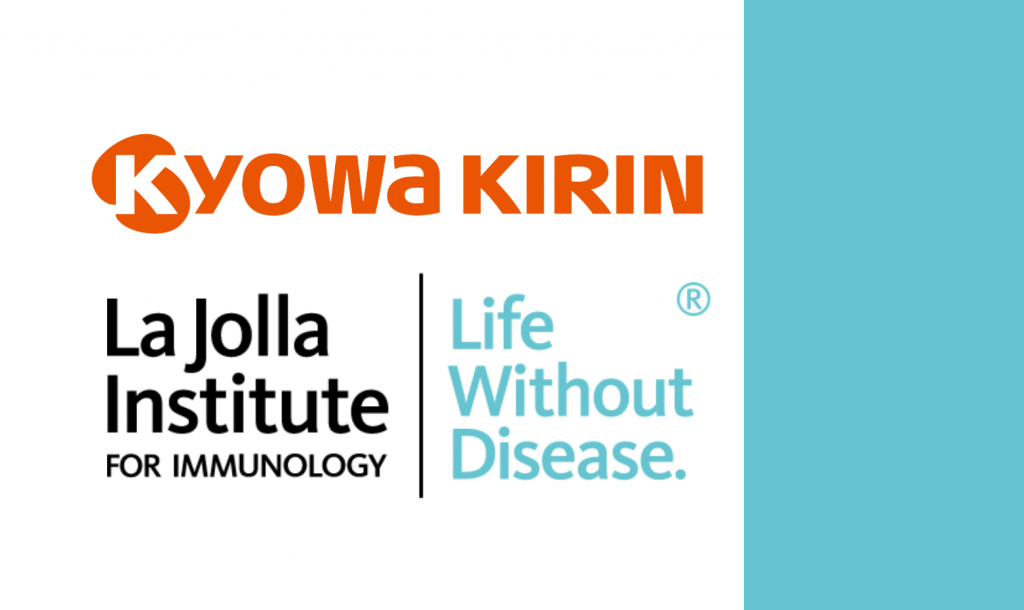Correction: A previous version of this article incorrectly stated that “Participants given the Janssen/J&J vaccine had the highest percentage of memory B cells after six months.” The data actually show that the mRNA vaccines led to the highest percentage of memory B cells after six months. This change is reflected below.
LA JOLLA, CA—Scientists at La Jolla Institute for Immunology (LJI) have published the first analysis of how four types of COVID-19 vaccines prepare the body to fight SARS-CoV-2. Their in-depth look at how T cells, B cells, antibody levels shift in the six months following vaccination is critical for understanding of how to protect people in the ongoing pandemic.
The new investigation, published in Cell, is the first study in history to compare how three different vaccine platforms trigger an immune response against the same pathogen.
“This study is important because it lets us answer how different vaccine platforms perform in terms of inducing immune responses,” says LJI Professor Alessandro Sette, Dr. Biol. Sci..
The researchers studied human immune responses to an mRNA platform (Pfizer-BioNTech and Moderna vaccines), a recombinant protein-based adjuvanted vaccine platform (Novavax), and a viral vector-based platform (Janssen/J&J). All four vaccines in this study were designed to prepare the immune system to fight the same target, called the SARS-CoV-2 Spike protein.
“We aren’t giving a vaccine scorecard,” says LJI Research Assistant Professor Daniela Weiskopf, Ph.D., who co-led the study with Sette and LJI Professor Shane Crotty, Ph.D. “This kind of side-by-side analysis has never been done before with people who received different vaccines at the same time—in a real life setting. Just understanding the immune responses to these vaccines will help us integrate what is successful into vaccine designs going forward.”
Key findings:
- Antibodies: After six months, those given Moderna had highest levels of neutralizing antibodies, followed by those given the Pfizer-BioNTech and Novavax vaccines. The Janssen/J&J vaccine led to the lowest neutralizing antibody levels.
- B cells: Participants given the mRNA vaccines had the highest percentage of memory B cells after six months.
- CD4+ T cells: All participants retained a similar percentage of memory CD4+ “helper” T cells against the virus.
- CD8+ T cells: The Novavax vaccine led to the lowest levels of CD8+ “killer” T cells. A higher CD8+ response was seen in those given Pfizer-BioNTech, Moderna, or Janssen/J&J vaccines. Overall, after six months, only 60 to 70 percent of participants retained memory CD8+ T cells.
“This is a very valuable, comprehensive immunological evaluation of these four different vaccines,” says Crotty.
The new study confirms that most people retain some immune response to SARS-CoV-2, regardless of which vaccine they receive. The researchers caution that this immune memory may not prevent infection, but it appears to help fight severe disease.
“Even if it is difficult to maintain a high level of neutralizing antibodies long term, the presence of a stable cellular immunity shows that the immune system can be reactivated very quickly, in a matter of days, if there is an infection,” says Sette.
LJI serves as a COVID-19 research hub
This research was possible thanks to the efforts of LJI’s recently opened John and Susan Major Center for Clinical Investigation. The center staff and scientists drew blood from local volunteers and processed many samples sent by study collaborators. The study leaders then worked with these samples to compare the four vaccines.
“LJI is a great place for collaboration in science,” adds Crotty. “We were doing fifteen kinds of immune system measurements, and there are very few places that can handle that kind of complexity and have that kind of expertise.”
“With this study, we have the same people, in the same lab, using the same tests to study immune responses,” says Weiskopf.
Going forward, the researchers are interested in the effects of COVID-19 vaccine booster shots on long-term immune memory. The scientists are also keeping a close eye on immune cell responses to SARS-CoV-2 variants and are currently analyzing immune responses in people who were vaccinated and experienced “breakthrough” infections.
Authors of the study, “Humoral and cellular immune memory to four COVID-19 vaccines,” include first authors Zeli Zhang, Jose Mateus, Camila H. Coelho, Jennifer M. Dan, and Carolyn Rydyznski Moderbacher. Additional authors include Rosa Isela Gálvez, Fernanda H. Cortes, Alba Grifoni, Alison Tarke, James Chang, E. Alexandar Escarrega, Christina Kim, Benjamin Goodwin, Nathaniel I. Bloom, and April Frazier.
This study was supported by the National Institute of Allergy and Infectious Diseases (CCHI AI142742, Contract No. 75N9301900065; U01 CA260541-01 and AI135078) and by LJI Institutional Funds.
DOI: 10.1016/j.cell.2022.05.022
###





